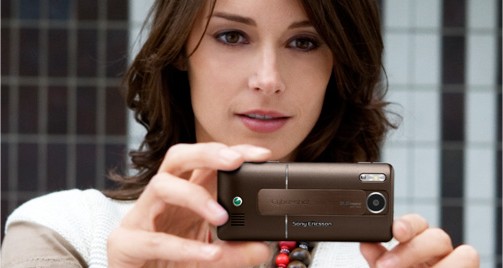 Just when you thought cellphone cameras couldn’t squeeze in any more megapixels, Sony announces a new cellphone camera sensor that supports 16MP photos and 1080p high-definition video.
Just when you thought cellphone cameras couldn’t squeeze in any more megapixels, Sony announces a new cellphone camera sensor that supports 16MP photos and 1080p high-definition video.
Sony will begin offering the sensor to manufacturers in January, which means we’ll probably see some cellphones taking advantage of it next year. Most likely, it will show up in Sony Ericsson cellphones first. Sony also announced “the industry’s smallest and thinnest” sensor that will support 8MP pictures in very thin phones. Both sensors are back-illuminated, which increases light sensitivity and reduces picture noise.
With this announcement, Sony is now the megapixel king for cellphone cameras. But does that title really mean anything?
It’s long been argued that megapixels don’t matter as much as other technical aspects of a camera like lens quality. When it comes to cellphone cameras, manufacturers are even more limited by their diminutive size. Apple seems to have found a sweet spot with its 5MP iPhone 4 cameras, which best the Droid X and Evo 4G’s 8MP cameras. Perhaps a jump to 16MP will offer some improvement over the iPhone 4’s camera, but will it be enough to justify the increased storage costs? Current iPhone 4 pictures come in at around 2MB — 16MP pics would eat up even more space.
It’s also worth questioning the usefulness of 1080p video on a cellphone. On the iPhone 4, 10 minutes of a 720p recording takes up around 1GB of space. With 1080p video, that number may hover around 3GB depending on the compression used. Regardless of the specific file size, 1080p video is going to take up a big chunk of space on cellphones for very little benefit. The difference between 1080p and 720p video isn’t easy to tell in televisions under 50-inches, and it’s certainly overkill for video meant to be watched on the web. The large file size will also make it unfeasible for cellphones with less than 32GB of storage.
Instead of pushing to higher megapixel lengths, Sony may be better off figuring out other ways to increase cellphone picture quality. For example, it could make mechanical shutters standard with its cameras, which would avoid the rolling shutter effect many users are seeing with cellphone cameras (even the iPhone 4’s).
![]() Getting content noticed is a challenge for everyone making apps. Join us at DiscoveryBeat 2010 and hear secrets from top industry executives about how to break through and profit in the new cross-platform app ecosystem. From metrics to monetization, we’ll take an in depth look at the best discovery strategies and why they’re working. See the full agenda here. The conference takes place on October 18 at the Mission Bay Conference Center in San Francisco. To register, click here. Hurry though. Tickets are limited, and going fast.
Getting content noticed is a challenge for everyone making apps. Join us at DiscoveryBeat 2010 and hear secrets from top industry executives about how to break through and profit in the new cross-platform app ecosystem. From metrics to monetization, we’ll take an in depth look at the best discovery strategies and why they’re working. See the full agenda here. The conference takes place on October 18 at the Mission Bay Conference Center in San Francisco. To register, click here. Hurry though. Tickets are limited, and going fast.
VentureBeat's mission is to be a digital town square for technical decision-makers to gain knowledge about transformative enterprise technology and transact. Learn More
